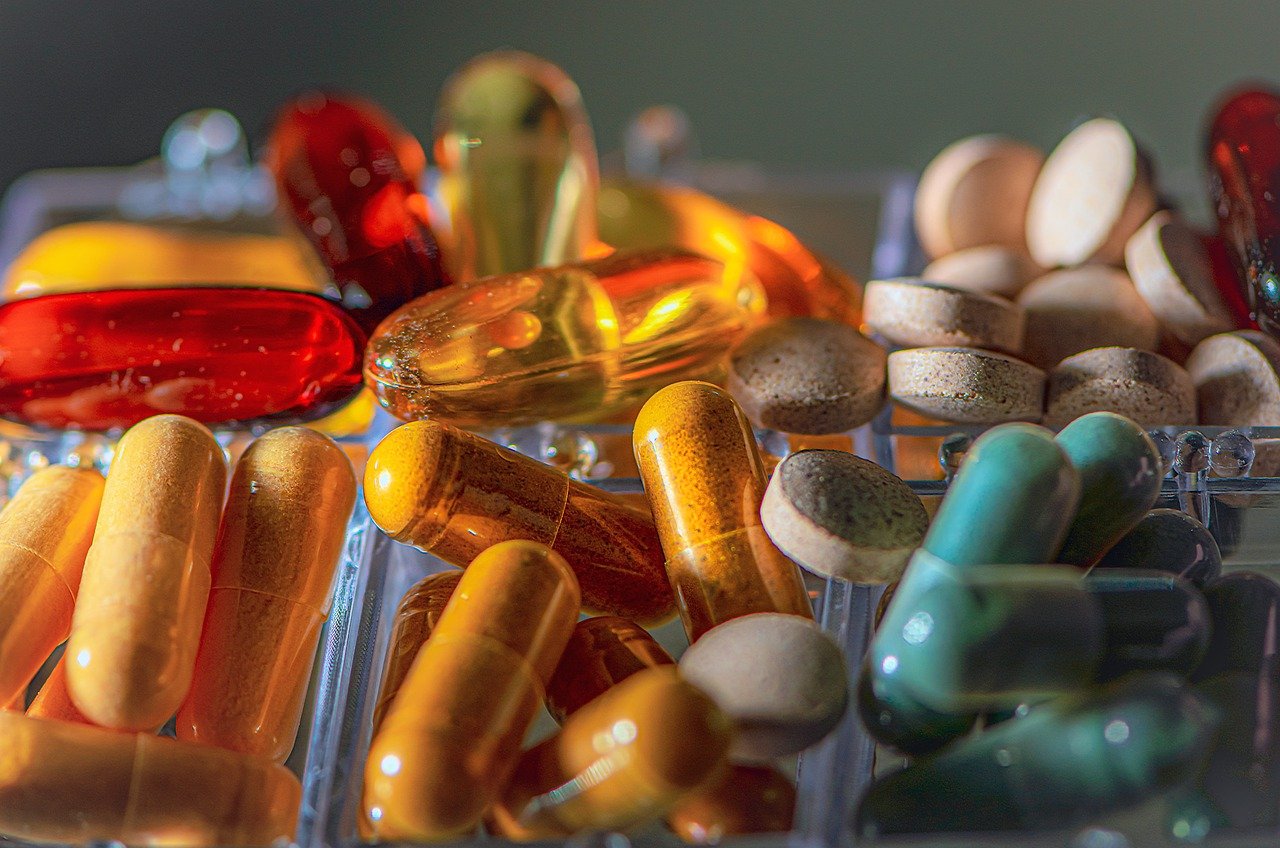Business
As Europeans Age These Three Companies Are Set To Profit
Research by Euromonitor revealed that before the pandemic, Europeans were adopting a change in their lifestyles, looking to make healthier choices, and furthering their knowledge regarding the benefits of natural and dietary supplements. In 2020, the dietary and supplement market witnessed steady growth of 5.2%, while in the year before, the market grew roughly 3.5%.

Now more than ever before, Europeans are living longer as advancements in technology and medicine are helping many of them approach their health and well-being more holistically.
Recent data released by Eurostat showed that the aging population is fast outpacing the demographic of people of working age in the 27 Member State bloc. Experts now predict that the median age in the EU-27 will grow by 4.5 years between 2019 and 2050, reaching 48.2 years. What’s more, the same data shows that by 2050, there will be close to half a million centenarians – those classified as living to 100 years – living across the member countries.
The pattern of the aging population has led to new challenges for countries, with some countries such as Italy, Greece, and Portugal, now expected to see their old-age dependency ratio increase above 50% in the coming years.
The old-age dependency ratio is used to measure how many people of working age will be available for every person aged 65 years and older. It’s expected that by 2050 there will be less than two persons of working age for every aging person across more than two-thirds of EU Member States.
A health system in crisis
Across the developed world, individuals have started to consider their health through a more holistic approach, looking towards alternative remedies and treatments for less severe medical conditions, and seeking more natural antidotes.
This comes perhaps at a crucial point in time, as European nations, more specifically, EU-27 Member States have been struggling to keep their healthcare systems afloat following the aftermath of the COVID-19 pandemic.
Rising costs due to inflation, climate change, and economic challenges are only some of the obstacles that now stand in the way between Europeans accessing equitable healthcare services, following an annual European Health Forum meeting in Austria.
Other issues, including the rapidly aging population, shortage of proficient healthcare workers and geopolitical tension between Ukraine and Russia have only further escalated the severity of the situation that many countries are now facing.
While European healthcare systems have always been considered the blueprint for fair, equitable, and well-funded public services to other countries in the West and some developing nations, underlying issues are causing the foundations to crumble away.
Europeans’ proactive approach to healthy living
Research by Euromonitor revealed that before the pandemic, Europeans were adopting a change in their lifestyles, looking to make healthier choices and furthering their knowledge regarding the benefits of natural and dietary supplements.
In 2020, the dietary and supplement market witnessed steady growth of 5.2%, while in the year before, the market grew roughly 3.5%.
The threat of COVID and the demand for natural and organic supplements that provide preventative measures to increase immune systems and boost well-being further elevated the need for a variety of supplements.
One study from the University of Zurich (UZH) found that 38.6% of women reported longer, consistent use of vitamins and mineral supplements compared to 28.5% of men. During the median follow-up of the study, 22.9% of women were consistent users, whereas only 14.6% of men did the same.
On top of this, demand for organic ingredients have soared in recent years, with compliance of sustainability playing a key role in this market segment, according to the Centre for the Promotion of Imports (CBI EU). Ingredients such as sea buckthorn, spirulina, chlorella, black cohosh, and ginseng, among many others, have seen strong demand from European consumers in the last few years.
However, aside from proprietary ingredients, European consumers in general have a fairly positive association with supplements. More than half – 60% – consider supplements and vitamins to be safe; while an additional 40% think that supplements are important for health and personal nutrition, according to findings by Euromonitor.
Changing consumer behavior in recent years, especially following the pandemic and associated health risks, has meant that more and more European consumers are looking towards natural supplements and multivitamins as an accessible alternative for improved well-being and mental boost.
The biggest players in the game
Across Europe, the development and supply of supplements and dietary vitamins have predominantly been led by three of the biggest supplies. These include GlaxoSmithKline (GSK); Procter & Gamble (NYSE: PG), and the German multinational company, Bayer AG (OTC: BAYRY).
Geographically, Procter & Gamble experienced strong growth across all major distribution regions. While the United States is currently the company’s biggest, and perhaps most lucrative market holding a 50% market share. Second to this, Europe holds a 21% market share, according to the company’s third-quarter financial earnings.
P&G’s biggest product markets include fabric and home care (35%); baby, feminine, and family care (25%); beauty (18%); health care products (14%), and grooming (8%). According to most recent financial earnings, Metamucil, Neurobion, and Pepto Bismol are some of the company’s strongest consumer products under their supplement, vitamin, and dietary categories.
Overall, the company witnessed a strong first quarter of fiscal year 2024, with total net sales of $21.9 billion, an increase of roughly 6% compared to the same period last year. Their personal health care generated organic sales of 10%, which was largely driven by price increases and volume growth.
Additionally, innovation and strong demand for respiratory products further elevated sales for Q1 2024, helping the company boost its bottom-line performance.
Bayer AG has a multinational footprint, with several headquarters located across Europe and the United States. While the company focuses on a wide range of medicines, vaccines, and consumer products, some consumer areas, including nutritional, digestive health, analgesics, and dermatology, among others have witnessed strong performance growth in recent years.
Some of their biggest brands include Aleve; Alka Seltzer; Aspirin and Bepanthen, with their biggest brands in the European market including Berocca and Supradyn.
For Q3 2023, the company reported lower sales and company revenue, however, this was in line with their overall expectations. Quarterly revenue totaled more than $11.28 billion, while total sales in the European/Middle East and African regions totaled $3.58 billion for Q3 2023.
Additionally, Bayer AG reported strong sales across all consumer health categories. The European/Middle East and African region recorded substantial health, with nutritional seeing double-digit percentage growth for the period. In total, the company reported more than $470 million in sales across the three regions.
Supplement sales of GlaxoSmithKline (NYSE: GSK) have steadily been growing due to product diversification and the increase in new regional hubs located across Europe. For the most part, GSK is heavily concentrated in the Italian region, with strong performance growth for vitamins and supplements.
The British multinational company reported more than $30 billion in full-year sales, representing a 19% increase year over year.
While the company holds a range of different products under its portfolio, its biggest, and perhaps most popular consumer healthcare supplements and vitamins include Cetebe, a treatment for Vitamin C deficiencies, and MaxiNutrition, a leading sports nutrition company that offers protein-based nutrition. Other well-known supplement products that are frequently purchased across Europe include Centrum and Vitasprint.
2023 was yet another landmark year for the company, seeing steady performance growth following the pandemic. Their general medicines category witnessed positive growth of 1%, with GSK reporting more than $11 billion in annual sales.
Further price increases and supply chain stabilization further helped the company overcome macroeconomic headwinds across Europe and other operating regions.
The biopharma company currently has a forward-looking strategy that will see it impact nearly 2.5 billion consumers across the globe. This is particularly important for GSK as Europe’s aging population and frail healthcare system are proving to become bigger obstacles for many consumers who are opening themselves to alternative healthcare remedies, including natural and organic supplements.
Data by Euromonitor, countries in Western Europe are expected to see the fastest growth of vitamin and dietary supplements in the coming years, with an estimated combined market value of more than $12 billion. Current forecasts estimate that this figure will continue to grow between 4% and 5% through 2025.
Countries including Germany, France, Italy, and the United Kingdom represented roughly 70% of Europe’s total supplement market, with Italy responsible for 27% of the market share. Further predictions estimate that France, Spain, and the UK will witness the fastest growth between 2020 and 2025.
Overall, consumer perceptions regarding the safety and use of supplements and vitamins are different across each country, with roughly 60% of UK consumers saying that most supplements are safe to use. Italy has the second highest, with nearly half of consumers saying supplements are safe, and 25% in France.
These and other factors play an important role for major supplement companies as they look to provide consumers with safer, more sustainable, and organic supplement options. Perhaps one of the most significant consumer trends in the supplement market is the demand for plant-based supplements, which has already become a growing trend in the U.S., Canada, and the United Kingdom.
Final Thoughts
With the European population growing older and living longer, and public healthcare systems under immense pressure, supplements and vitamins could become a suitable alternative for many seeking more accessible and organic treatments for less serious medical conditions.
While there remains an untapped market of opportunities for many brands and biopharma companies, some of the biggest players in the game, who already have a firm foundation and footprint in the regional market could increase the competition for smaller, lesser-known brands.
However, new consumer trends, such as sustainability, plant-based supplements, and increased transparency could play in favor of smaller brands, however, these efforts could further increase operational costs, with companies passing costs onto consumers.
Ultimately, consumers will continue seeking safe and reputable supplements, for a variety of reasons, it would mostly depend on how quickly companies can adapt to changing demands, and how well they can compete against multinational brands.
__
(Featured image by Ri_Ya via Pixabay)
DISCLAIMER: This article was written by a third party contributor and does not reflect the opinion of Born2Invest, its management, staff or its associates. Please review our disclaimer for more information.
This article may include forward-looking statements. These forward-looking statements generally are identified by the words “believe,” “project,” “estimate,” “become,” “plan,” “will,” and similar expressions. These forward-looking statements involve known and unknown risks as well as uncertainties, including those discussed in the following cautionary statements and elsewhere in this article and on this site. Although the Company may believe that its expectations are based on reasonable assumptions, the actual results that the Company may achieve may differ materially from any forward-looking statements, which reflect the opinions of the management of the Company only as of the date hereof. Additionally, please make sure to read these important disclosures.

-

 Crypto4 days ago
Crypto4 days agoBitcoin Traders on DEXs Brace for Downturn Despite Price Rally
-

 Business2 weeks ago
Business2 weeks agoDebt-Fueled Markets, Zombie Corporations, and the Coming Reckoning
-

 Crowdfunding19 hours ago
Crowdfunding19 hours agoFrom Confiscation to Cooperation: Funding Casa de la PAZ’s Social Transformation
-

 Impact Investing1 week ago
Impact Investing1 week agoGlobal Energy Shift: Record $2.2 Trillion Invested in Green Transition in 2024


















